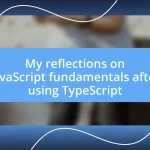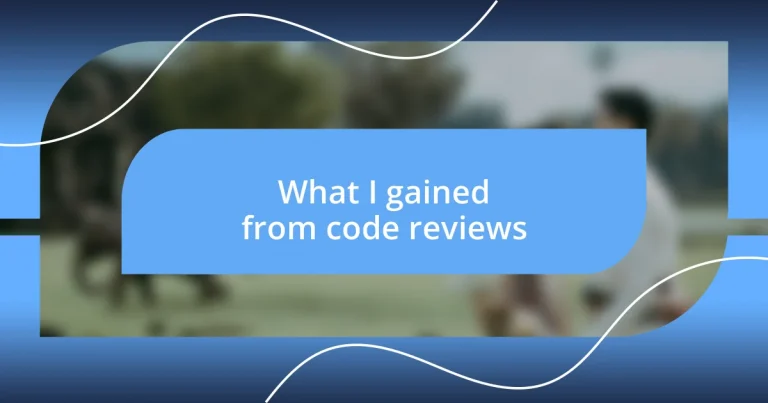Key takeaways:
- Code reviews serve as collaborative learning opportunities, fostering knowledge sharing and enhancing coding skills through constructive feedback.
- Participating in code reviews builds teamwork by promoting trust, open communication, and shared accountability among team members.
- Engaging with diverse perspectives during reviews leads to improved code quality and an understanding of best practices, ultimately enhancing overall development standards.
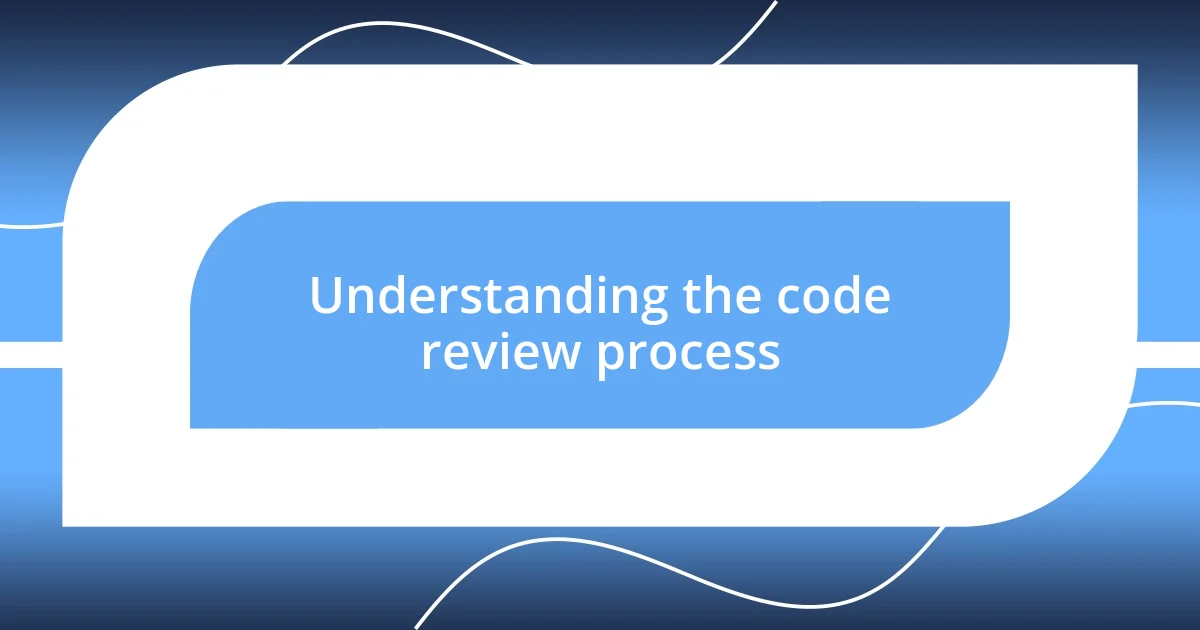
Understanding the code review process
The code review process is more than just a checkpoint; it’s a learning hub. I remember a time when a colleague pointed out a subtle optimization in my code that I had overlooked. It was a small change, but it opened my eyes to the power of collaboration and different perspectives.
At its core, a code review fosters a culture of sharing knowledge and improving skills among team members. Have you ever considered how much you can learn from someone who approaches problems differently? Each review session can feel like a mini-workshop, where ideas flow and creativity sparks, making the overall project stronger.
Moreover, receiving feedback can be a bit nerve-wracking, especially when you’ve poured your heart into crafting your code. Yet, I’ve found that the more open and receptive I am during these reviews, the more enriched my work becomes. It’s like having a safety net that helps me enhance my skills while also building trust and camaraderie within the team.
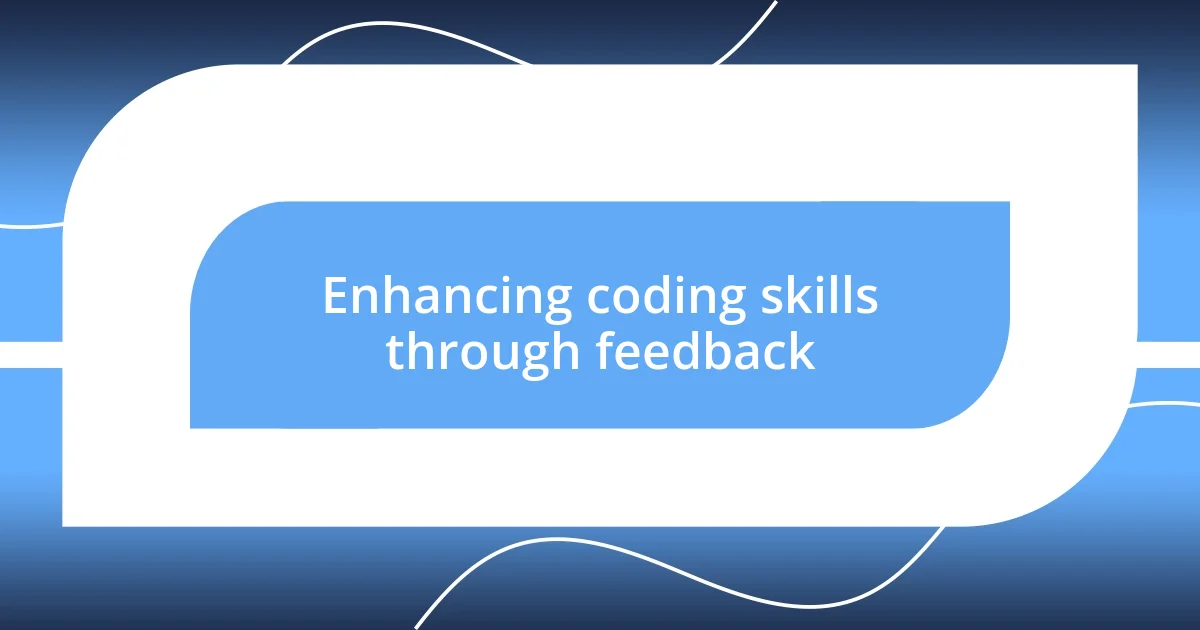
Enhancing coding skills through feedback
The feedback I’ve received during code reviews has profoundly influenced my coding skills over time. There was a moment during a particularly challenging project when my peer identified a more efficient way to structure my functions. I initially felt defensive, but as they explained their thought process, I genuinely appreciated the insight and adapted my approach, leading me to not only improve that project but also future coding endeavors.
I’ve noticed that repeated exposure to diverse coding styles during reviews can significantly broaden my own skill set. A standout memory comes to mind—a reviewer introduced me to a new algorithm I had not previously explored. That exchange was a lightbulb moment for me! It sparked a curiosity to delve deeper into algorithms, forever changing how I tackle problems. This highlights how learning from others can push your boundaries as a developer.
Furthermore, incorporating constructive feedback helps me uncover blind spots in my coding practices. I vividly recall a session where a simple comment about variable naming conventions led me to rethink how I categorize my own code. It might seem trivial, but that small shift in mindset significantly enhanced the readability of my code for others. I believe this continuous loop of receiving and implementing feedback cultivates a richer understanding of coding concepts that I carry into every new project.
| Aspect | Before Code Reviews |
|---|---|
| Skill Development | Limited to self-learning and resources |
| Collaboration | Minimal interaction with peers |
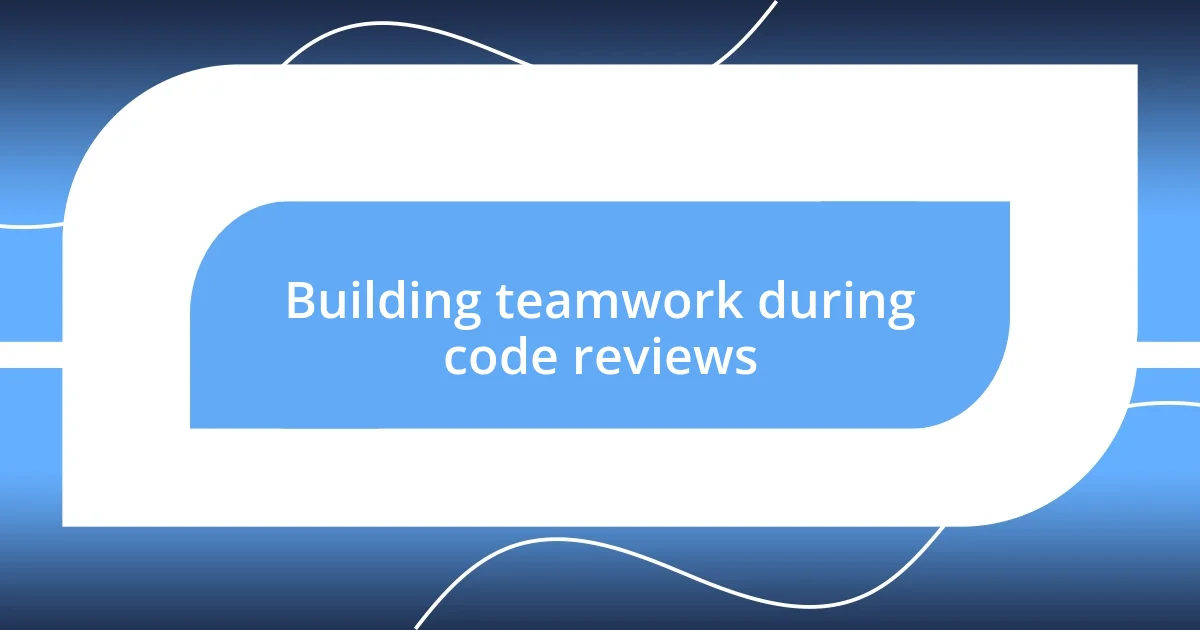
Building teamwork during code reviews
Being part of a code review can truly transform the dynamics of teamwork within a group. I remember a session where we all gathered around to examine each other’s code. The tone shifted from apprehension to collaboration as we shared laughs and ideas. It felt like a safe space, where every opinion was valued and encouraged. This environment not only made me feel more connected to my teammates, but it also inspired our creativity. After all, we were all there with one goal in mind: to build something great together.
Here are a few ways how code reviews cultivate teamwork:
- Foster Trust: When team members openly critique and discuss code, it builds trust, creating a more cohesive unit.
- Enhance Communication: I’ve noticed that these sessions prompt better communication skills, as we learn to articulate our thoughts clearly.
- Unity in Problem-Solving: Working together to solve coding issues fosters a sense of unity, as everyone contributes their insights.
- Shared Accountability: Each person involved feels a responsibility for the code quality, reinforcing a collective ownership mentality.
- Celebrate Successes: I cherish those moments when we collectively celebrate a successful code implementation, reinforcing our bond as a team.
In this way, code reviews become an essential part of our collaborative journey, merging our skills and perspectives into something stronger than what we could achieve alone.
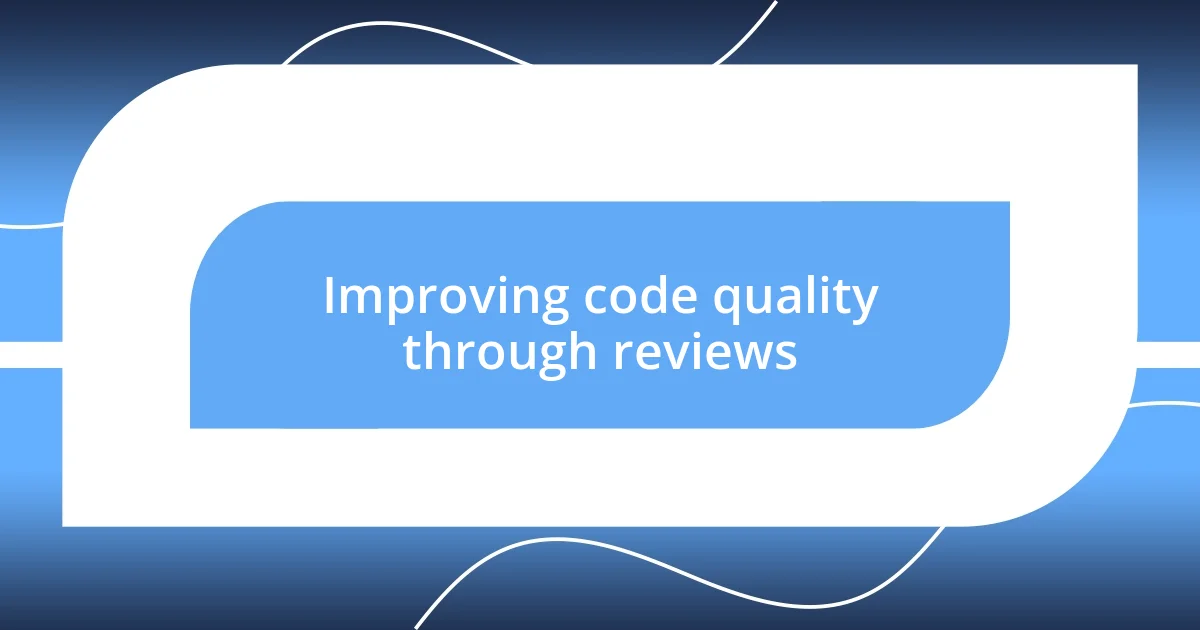
Improving code quality through reviews
Improving code quality through reviews is one of the most valuable aspects of collaborating with others. I remember a time when I received feedback on a piece of code that I thought was pretty solid. A colleague pointed out several areas where I could optimize performance. At first, I was taken aback—how could my code be lacking? But as I took a step back and examined their suggestions, I realized that those insights not only enhanced that specific project, but also elevated my overall coding standards for future tasks.
In my experience, engaging with diverse perspectives during code reviews has often revealed inconsistencies and flaws I hadn’t noticed. One particularly memorable instance was when a reviewer highlighted a logic error that could have caused significant issues later. At that moment, I felt a mix of relief and gratitude. It struck me how critical it is to have another set of eyes on your work—someone who can catch the mistakes you might overlook. This process not only serves to rectify immediate problems but fosters a culture of continuous improvement within the team.
Moreover, I often find that receiving constructive criticism in a supportive environment encourages a mindset of growth. Just the other day, someone pointed out that I frequently overcomplicated functions when simpler solutions were available. It was a gentle nudge that made me reflect: Was I making the code harder to read for others? This kind of feedback opens the door to discussions about best practices and cleaner coding, ultimately leading to higher-quality code that benefits everyone involved. Have you ever realized that the simplest changes can have the most profound impact on your coding? That’s exactly what I continually discover through this process.
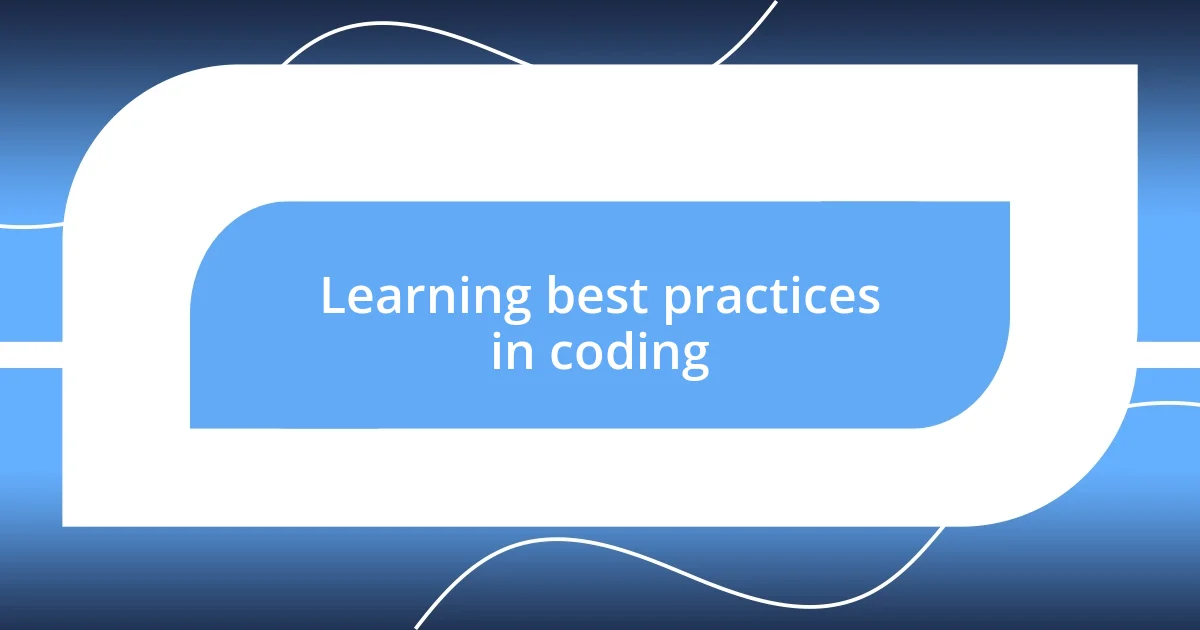
Learning best practices in coding
When it comes to learning best practices in coding, nothing beats the wealth of knowledge gained from a code review session. I remember my first experience reviewing someone else’s code—there was a moment where I came across a naming convention that seemed odd to me. Instead of just modifying it, I decided to ask why they chose that approach. The discussion led us to uncover a shared understanding of naming conventions that really sharpened our coding style. I often find myself reflecting on how critical open dialogue is to refining our skills.
Another key takeaway has been the value of writing clean, maintainable code. Early on, a colleague pointed out how using comments effectively could save time and headaches later. Initially, I shrugged it off as something I’d get to when I had more time. But as I integrated their advice into my own work, I realized that those little notes were like lifebuoys in a sea of complex logic. Isn’t it fascinating how a simple comment can bridge the gap between confusion and clarity? It’s moments like these that have made me truly appreciate the art of code readability.
Moreover, I can’t emphasize enough how important it is to understand the reasoning behind best practices. There was a time when I’d simply follow guidelines without grasping their significance. An insightful peer once explained why avoiding deep nesting could boost performance and enhance readability. That lightbulb moment changed everything for me. Now, I actively seek out these conversations during code reviews because I know that diving deeper into best practices not only improves my coding but also enriches my perspective on collaborative development. What’s your experience with understanding the “why” behind coding standards? It can be a game changer.






